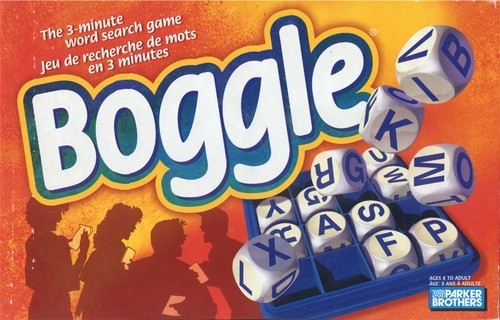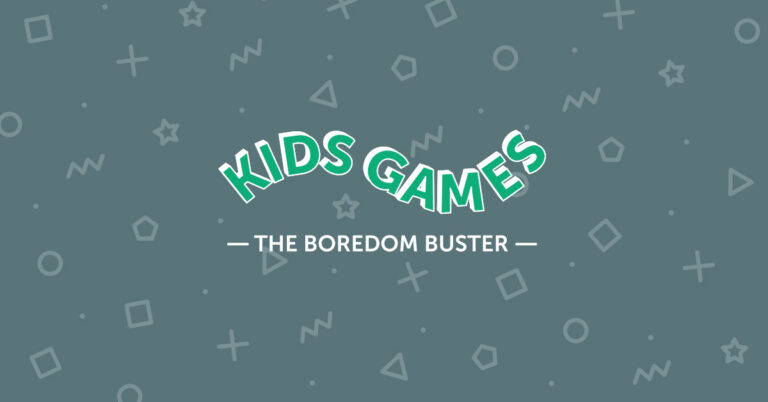9 best word games for vocabulary skills
Last Updated on June 1, 2024 by Jhonni Jets
Building a robust vocabulary is important for communicating effectively, both verbally and in writing. It allows you to express complex ideas and thoughts with precision and nuance. While reading is one of the best ways to naturally expand your vocabulary over time, games can make learning new words an engaging and fun experience. Word games help reinforce your memory of definitions through repetition and competition. In this article, we’ll explore 9 of the most effective word games for strengthening vocabulary skills and keeping vocabulary learning entertaining.
Scrabble

Scrabble is perhaps the most classic word game of all time. The goal is to spell out words on a game board using letter tiles to score points. Players must use their knowledge of valid words and letter values to form interlocking words for the highest scoring plays. Scrabble encourages strategic thinking as well as looking for obscure word options. It’s fantastic for improving your ability to not just recognize words but also recall them when needed. The competitive yet social aspects of Scrabble make it a very motivating way to beef up your vocabulary. It works well for players of any age and language ability.
Scrabble has remained popular for decades because it offers a multi-dimensional learning experience. You have to consider things like building off existing words, using premium letter tiles efficiently, and blocking your opponent’s moves. This cognitive stimulation, combined with the satisfaction of making high-scoring plays, keeps the game engaging over many rounds. Looking up unfamiliar words in the dictionary also reinforces new vocabulary in a meaningful context. The limits of the letter tray require flexibility and creativity with word options. Overall, Scrabble is a superb word game for developing stronger memorization of spelling and definitions.
Boggle

Similar to Scrabble but with dice instead of tiles, Boggle challenges you to find as many words as possible within a 3×3 grid of letters. All words must be three letters or longer and must be formed by following adjacent letters only. This game can be played solo against the clock or in teams. Boggle encourages nimble thinking on your feet as well as evaluating scrambled letter combinations for potential words. It trains your brain to quickly recognize word patterns, regardless of letter order. This skill directly translates to having a richer vocabulary for understanding context clues and deciphering unfamiliar terminology.
Like Scrabble, Boggle engages multiple regions of the brain through its visualization, flexibility, memory, and competition components. However, it moves at a faster pace which some may find more stimulating than the more strategic Scrabble. Boggle is also very portable and affordable, making it easy to whip out for a quick vocabulary workout anywhere. Both print and app versions are available. For maximizing learning, players can discuss missed words after each round or use an online dictionary to verify answers. Overall, Boggle delivers an exhilarating yet productive vocabulary challenge.
Bananagrams

As a scrabble-style game without a board, Bananagrams focuses purely on quick word construction using letter tiles. Each player starts with the same set of consonant and vowel tiles and the goal is to be the first to use all your letters to form interlocking words. This game moves at lightning speed since you have to constantly rearrange your letters as new words are formed. Bananagrams strengthens skills in rapid pattern recognition, flexible thinking, and competitiveness under pressure. It has crossword-like benefits for recalling obscure words and making connections between letter combinations and their meanings.
Because letter tiles can be utilized in any fashion, not just across a fixed board, Bananagrams forces players way outside their comfort zone. This expands vocabulary learning beyond just reinforcing standard words. It encourages experimenting with various word structures and perspectives. The fast pace also mimics real-life scenarios that test your ability to articulate thoughts and solve problems on the fly. Clean up is simple as letters are contained in personal trays. Overall, Bananagrams brings an innovative and stimulating twist to traditional word game formats for boosting versatile vocabulary skills.
Codenames

Codenames is a team-based word guessing game where two spymasters provide one-word clues to help their team deduce coded words on a shared grid. It associates vocabulary with visual context rather than direct definitions. Players must rely on their word intuition, knowledge of word relationships, and ability to read subtle clues. This challenges participants to strengthen neural connections between concepts, strengthening recall and comprehension. Codenames also boosts teamwork skills for communicating strategically under pressure. It’s engaging for both casual game nights and educational settings.
Unlike games that purely test rote memorization, Codenames simulates real-world thinking that requires piecing together context clues. Players learn to analyze word patterns from various angles based on limited information. This better mimics how vocabulary is applied in learning foreign languages, literacy, problem-solving and more. Codenames maintains high energy through its code-breaking theme and quick turn-based pace. It’s suitable for players of all ages and language levels since clues can be tailored accordingly. Overall, Codenames cultivates a robust, versatile vocabulary through creative, collaborative critical thinking.
Wordscapes

Wordscapes is a unique word game played on a landscape puzzle board. Players reveal letter tiles by solving crossword-style clue challenges that are grouped by theme. For instance, clues may all relate to nature, food or activities. This associate’s vocabulary with conceptual categories for stronger retention. Wordscapes challenges deductive reasoning skills and the ability to piece together partial clues. It’s very motivating through gamification elements that track accomplishments and collectibles. Wordscapes can be enjoyed casually on mobile devices or more strategically on desktop.
Unlike traditional word games limited to language alone, Wordscapes strengthens multiple areas of cognition by integrating visual-spatial problem solving. Players must envision how letter tiles fit together on the board to discover words both horizontally and vertically. The creative theming of clues also builds concept associations beyond just word-definition pairs. Wordscapes stimulates neural development through diverse learning modalities like visual, linguistic, analytical and strategic thinking. It’s suitable for all ages and keeps vocabulary learning lively across many levels of challenge. Overall, Wordscapes engages learners through an immersive puzzle adventure for vocabulary.
QuizUp

QuizUp is a trivia gaming app that hosts competitive matches in various subject areas including vocabulary. Players are presented with term definitions to match to the correct word or are given words to identify definitions for. Feedback is provided to reinforce learning from mistakes. The social and competitive elements maintain high engagement as players climb global leaderboards. With support for 30+ languages, QuizUp cultivates vocabulary in any target language through adaptive challenges and gamification.
What sets QuizUp apart from other word games is its massive scope and social connectivity. Learners have access to a colossal vetted question bank powered by a global community. Instant feedback and tracking statistics fuel continuous improvement. Competing in short timed matches simulates real-world application under pressure. QuizUp’s mobile-first design also allows vocabulary building to continue anywhere, anytime through bite-sized learning. With in-app tip sharing and friendly rivalries, the social experience makes learning feel more natural and less stressful. QuizUp’s platform transforms vocabulary into an exciting eSport!
Wordfeud
Wordfeud is an online multiplayer game modeled after the board game Scrabble. Players take turns adding letters to a virtual game board to form words that score points. It’s similar to Scrabble but has a social networking component that allows matches with users worldwide in real-time or asynchronous play. Wordfeud gamifies language learning through competitive elements like global leaderboards, achievements and customization options. Since matches involve live human opponents, it motivates strategic thinking while developing communication skills.
Wordfeud stands out for its massive socially-connected player network. This fosters a sense of community that maintains long-term engagement. Through asynchronous play, busy schedules don’t impede progress and turns can be taken anytime. Wordfeud also allows for private matches, tournaments and teams – further customizing the experience. Its web and app availability makes the vocabulary building portable as well. Automated features remove scorekeeping tedium while still honoring Scrabble rules. Overall, Wordfeud advances learners’ vocabulary through friendly competition on a global virtual Scrabble stage.
Word Cookies
Word Cookies is a fun twist on classic word games where letters are assembled to form sweet treats instead of words alone. Players pick letter cookies to create valid word combinations according to the provided theme such as animal, food or activity words. Correct sequences earning points and remove letters from the board. It’s a cross between Boggle, Scrabble and newer match-3 style games for a uniquely crafty vocabulary challenge.
Unlike standard word games, Word Cookies introduces visual-spatial matching that requires rotating tiles to form perfect rows. This engages a different region of the brain compared to straight letter combinations. Themes effectively categorize words conceptually for additional mental organization benefits. Successfully clearing letters provides an extra dopamine boost compared to regular scoring systems as well. With a simpler set-up than board games, Word Cookies offers an accessible yet still engaging option. Including pictures on tiles aids memory by pairing words with visual representations. Overall, it’s a charming twist on tradition for all-ages vocabulary fun!
Word Stacks
Word Stacks takes word building to three dimensions through stacking letter cubes. Players take turns adding individual letters to the tower to spell out words either vertically or horizontally. Building high towers with interweaving words develops challenging spatial skills. Word Stacks is driven by gameplay mechanics rather than just puzzles with static answers, motivating strategy. Keeping constructions stable adds an element of suspense and skill. Alternate modes involve spells/powers or stacking combos for variety.
While vocabulary is still the foundation, Word Stacks layers on more complex problem solving and critical thinking. Careful planning is required to avoid collapsed stacks from illegal moves. Creating flowing structures instead of isolated words promotes holistic thinking. The vertical dimension liberates word construction in new ways compared to two-dimensional boards. Hand-eye coordination is developed through precisely stacking cubes. Overall, Word Stacks elevates word building to another level of intelligence and creativity for well-rounded vocabulary mastery.
Conclusion
In summary, word games provide an entertaining avenue for boosting vocabulary throughout life. They reinforce new terms through contextual repetition and competition in ways traditional memorization alone cannot match. The reviewed games appeal to a variety of learning preferences through creative adaptations of classic word puzzles. Involving strategy, speed, teamwork, spatial skills and more, they engage more regions of the brain than straightforward flashcards. Most importantly, word games cultivate a mindset that views vocabulary growth as a lifelong journey of discovery rather than a school chore.
While this covered some top options, countless other word-based games exist across all genres. Finding the right fits based on personal interests unlocks the greatest potential for sustained, enthusiastic learning. Board games remain evergreen but digital mediums now often streamline setup and connecting players globally. Regardless of format, regularly challenging one’s word power through fun competition nourishes communication, creativity and cognition well into adulthood. Enriching language abilities should feel rewarding rather than tedious – and these 9 games undoubtedly deliver.






